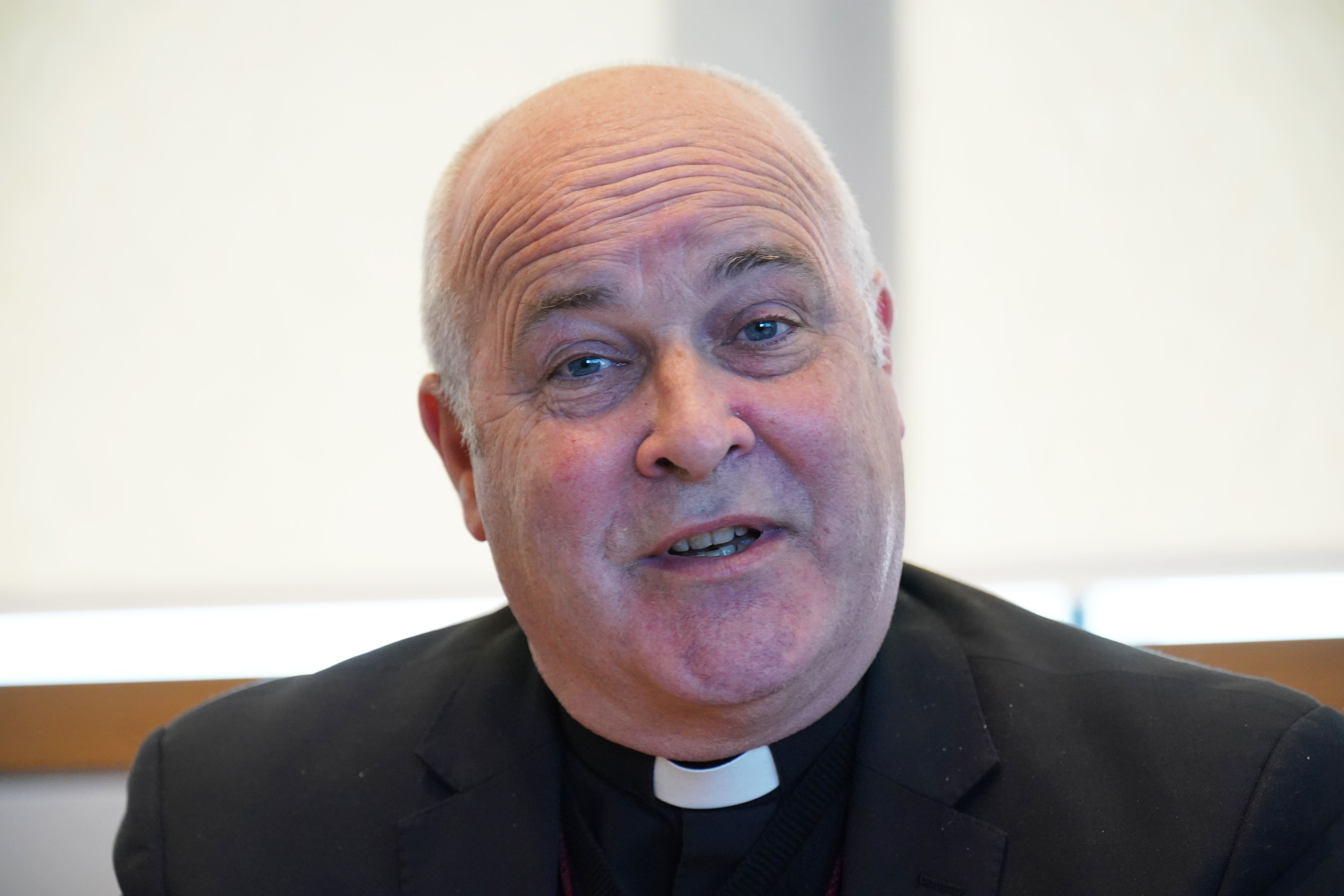We think disunity is normal but it is a disgrace, says archbishop
In his presidential address to the church’s parliament the Archbishop of York, Stephen Cottrell, called for unity and more focus on the word ‘our’.

People must learn to disagree well, an archbishop said as he branded disunity “a disgrace” in his opening speech to the Church of England’s parliament.
People are “stubbornly unreconciled, appear complacent about division and often also appear all too ready to divide again”, the Archbishop of York, Stephen Cottrell, said.
In his presidential address on the first day of the General Synod of the Church of England in York, he called for unity and more focus on the word “our” over “my”.
We have got used to disunity. We think it's normal when, in fact, it is a disgrace, an affront to Christ and all he came to give us
He said: “We have got used to disunity. We think it’s normal when, in fact, it is a disgrace, it is an affront to Christ and all he came to give us.
“But if we begin with the word ‘our’ and let it change the way we see ourselves and see each other, then we will also see that our belonging to each other is not only non-negotiable, it is what we must prize and hold on to in all our discussions, all our decisions and all the issues we face.
“Moreover, we must always go the extra mile of finding those ways of widening the tent of our inclusion, but without letting anyone be lost.
“Disagreeing well really does matter.”
Mr Cottrell’s comments come after the Archbishop of Canterbury spoke out against antisemitism and about the need for universities to protect minority students.
Justin Welby, appearing this week at a Board of Deputies of British Jews event at a synagogue in central London, said while there is no right not to be offended, “everyone has the right not to be abused”.
Mr Welby, speaking amid a series of free speech rows on campuses, suggested there should be “serious consequences” for the funding, authority and recognition of universities which fail to protect students from minority backgrounds.
Elsewhere in his address, Mr Cottrell said he had assured Swiss Cardinal Kurt Koch that while the Anglican Communion faces “enormous challenges”, it is not splitting.
I told him we are not splitting, that yes, we face enormous challenges, and that many of them are around the limits and requirements of unity and diversity
He said: “He asked me why are you in Rome talking about unity when the Anglican Communion is splitting?
“I told him we are not splitting, that yes, we face enormous challenges, and that many of them are around the limits and requirements of unity and diversity.
“I acknowledged that within the Anglican Communion there are movements for change and movements that cherish unchanging practice.
“But I also said that our way of ecclesial belonging, as a federation of churches in communion, but not under a single rule, allowed us flexibility within the boundaries of our bonds of communion, enabling us at our best to walk together with our conscientiously held differences.”
In February, the General Synod – which is the Church of England’s legislative assembly – passed a motion to allow the blessing of same-sex couples in civil partnerships.
The vote saw the Global South Fellowship of Anglican Churches (GSFA), which represents some Anglican churches question Mr Welby’s fitness to lead.
Recognising divisions on the issue at the time, Mr Welby welcomed the blessings but said he would not personally carry them out due to his “pastoral responsibility for the whole communion”.
During the five-day July Synod, there will be an update on the plans for the prayers of blessing for same-sex couples, as well as discussions on the church’s decision to pull its investment from fossil fuel companies, a multimillion-pound fund for victims of church-related abuse, and a proposal to scrap marriage fees.